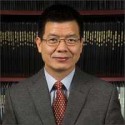Author Interviews, CDC, Hearing Loss, Occupational Health / 06.05.2016
Mining and Construction Workers Most Affected by Occupational Hearing Loss
MedicalResearch.com Interview with:
Elizabeth A. Masterson, PhD CPH
Dr. Masterson is an epidemiologist in the NIOSH Division of Surveillance, Hazard Evaluations and Field Studies
CDC
MedicalResearch.com: What is the background for this study? What are the main findings?
Dr. Masterson: Occupational hearing loss, primarily caused by high noise exposure, is the most common work-related illness in the United States. It is a permanent but entirely preventable condition. Researchers from the National Institute for Occupational Safety and Health (NIOSH), a part of the Centers for Disease Control and Prevention, compared the prevalence of hearing impairment within nine industry sectors and the associated impact on quality of life for noise-exposed workers.
Hearing impairment is hearing loss that impacts day-to-day activities. The Mining sector had the highest prevalence of workers with any hearing impairment, and with moderate or worse impairment, followed by the Construction and Manufacturing sectors. Impact on quality of life was measured by calculating disability-adjusted life years (DALYs). DALYs represented the number of healthy years lost because of hearing impairment. This study found that 2.5 healthy years were lost each year for every 1,000 noise-exposed U.S. workers because of hearing impairment. These lost years of good health were shared among the 13% of workers with hearing impairment (about 130 workers out of each 1,000 workers). Mining, Construction and Manufacturing workers lost more healthy years than workers in other industry sectors (3.5, 3.1 and 2.7 healthy years lost, respectively, each year for every 1,000 workers). Mild impairment accounted for 52% of all healthy years lost and moderate impairment accounted for 27%.
(more…)


